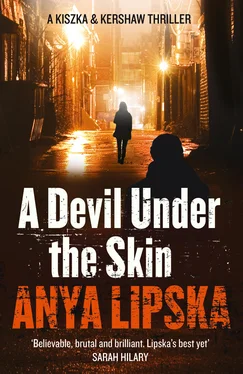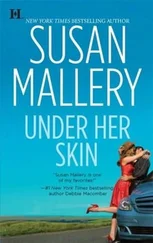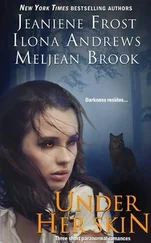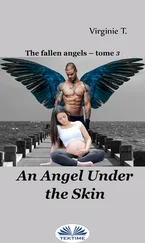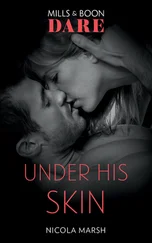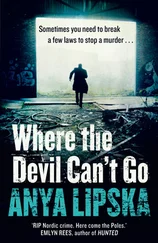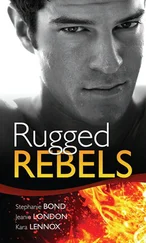Wojtek’s case promised to be child’s play by comparison. He was demonstrably alive and – judging by the number of biscuits he demolished during their half-hour interview – in robust health for a man of eighty-eight. The only hitch was that Janusz needed to see photographic ID to confirm beyond doubt that Wojtek was who he said he was – but he didn’t have anything to hand. Janusz arranged to return to check the old boy’s passport, which his daughter looked after for him, in a few days’ time.
Half an hour later, Janusz emerged between the Corinthian columns that framed the front porch into a surprisingly spring-like March day, with a powerfully positive impression of life at St Francis. He’d always thought he’d rather die than go into an old people’s home, but he had to admit that seeing out your final days at a place like this one mightn’t be the ordeal he’d feared, after all.
He’d just reached the street and was about to light a cigar when he heard a voice behind him calling his name. It was Stefan, one skinny arm raised as though hailing a taxi, the other leaning on a walking stick.
‘What a splendid day!’ he said, on reaching Janusz. ‘Walk with me to the High Street,’ he added, brandishing his stick like a battle standard. Suppressing a smile at the old boy’s imperious manner, Janusz fell into step alongside him.
At the corner of the High Street, he turned to bid Stefan farewell, but the old guy said, ‘Let me buy you a cup of tea. It isn’t often I get the opportunity to converse with someone still in possession of a full set of marbles.’
Janusz barely paused before bowing his head in acceptance: he wasn’t in a rush, and anyway, he enjoyed the company of old people. It wasn’t far to what was clearly Stefan’s regular café, judging by the effusive welcome he received from the Turkish guys behind the counter.
‘When I first came to London, in ’45, all the greasy spoons were run by Eyeties,’ said Stefan, in a whisper loud enough to turn heads as they made for a window table. ‘Now, it’s Turks. Next year, who knows!’ His chuckle sounded like a rusted iron door being wrenched open.
Sitting opposite each other, Janusz got his first proper look at his companion. Age had sculpted what remained of the flesh on Stefan’s face into dramatic folds and fissures, but he still had a luxuriant head of white hair, swept back from a pronounced widow’s peak in a style that had last enjoyed popularity in the fifties or early sixties. And yet there was something about his darting gaze and ever-changing expression that gave him an air of irrepressible youth, making it hard for Janusz to guess his age. Late seventies, perhaps?
The bird-like eyes caught Janusz’s gaze. ‘You’re wondering how old I am’ – an age-spotted hand waved away his polite murmur of protest – ‘Don’t worry. I’m used to it. Paradoxically, I find it’s always the young who are the most obsessed with age.’
He poured a stream of sugar into his black tea – Janusz noting, approvingly, that his commitment to integration stopped short of polluting the brew with milk – and stirred it briskly. ‘I was born in Lwow, which I believe the Ukrainians now call Lviv – in 1923.’
Kurwa! Janusz did the sums: the old boy must be ninety. He appeared in astonishingly good shape for his age – as well as being sharp as a tack. ‘You don’t look it,’ he said; the automatic response to learning the age of anyone over thirty, although this time, sincerely meant.
Stefan straightened his back. ‘My father lived to 101, God Rest his Soul. Never missed a day in his vegetable garden, and dropped dead hoeing the asparagus bed.’
‘So … were you in Lwow when the Russians invaded?’
‘Indeed I was. The tanks arrived the day after my seventeenth birthday. As a boy scout, I naturally took part in the defence of the city – until the generals kapitulowali .’ It was the first time he’d slipped into Polish, as if such a shameful event could only properly be named in their mother tongue.
The waiter delivered Stefan’s bacon sandwich but instead of starting to eat, he lifted off the top layer of bread and set it aside.
‘I ended up in Kolyma, in the camps, mining gold for Stalin.’ As Stefan talked, he retrieved a plastic bag from his breast pocket, and produced a pair of nail scissors, before starting to snip the fatty rind from a rasher, apparently oblivious to Janusz’s mystified look. ‘Mining!’ he chuckled. ‘That’s a fancy word for hacking lumps out of permafrost with a fucking pickaxe.’
After dropping the spiral of bacon rind into his plastic bag, he was just starting surgery on a second rasher when he noticed Janusz’s expression. ‘I have to watch my figure, you know,’ he said, patting his trim midriff. ‘The birdies are the beneficiaries. Waste not, want not – Kolyma taught me that.’
Once the bacon had been denuded of all its fat, Stefan cleaned his scissors on a paper napkin, continuing in a matter of fact tone, ‘It was minus 50 the first winter. Men died like snowflakes on a hot stove. I was young. I survived.’ Bracing his shoulders, he took a surprisingly large bite of his sandwich.
‘How long were you there?’
Stefan took his time finishing his mouthful, before dabbing his lips with a napkin. ‘They let me out in ’42 to join Anders’ Army – the Allies were desperate for young men by that time. So I exchanged Siberia for la bella Italia .’
‘You fought in Italy?’ Janusz was impressed: General Anders’ Second Polish Corps had played a decisive role in the Allied push through Italy, earning renown for their bravery at the Battle of Monte Cassino. ‘Yes. That was where I mislaid my kneecap, just outside Ancona.’
Janusz struggled to think of something to say that wouldn’t be a platitude: he always felt overawed to hear of the bravery and sacrifice made by the wartime generation of his fellow Poles. Stefan would have grown up under the Second Republic, when Poland had been one of the great European powers – until its invasion by the Nazis from one side, and the Red Army from the other. Then, to have survived Kolyma – the most brutal place in the entire gulag, graveyard to hundreds of thousands of Poles and countless other ‘enemies of socialism’ – to fight as an Allied soldier … and for what? To see America and Britain deliver his country into the arms of Stalin and decades of Soviet rule.
Stefan was frowning down at his stick-like wrists as if they belonged to someone else. ‘I was built like a bull, then, though you wouldn’t believe it now.’ Suddenly he flapped his free hand. ‘Anyway, that’s all ancient history, old men’s war stories. What about you? I take it you’re some kind of insurance investigator?’
Janusz paused. Put like that, he wasn’t at all sure he liked the sound of his new role. Private investigator was one thing, ‘insurance investigator’ summoned up something more corporate and somehow less … honorowy – especially when measured alongside Stefan’s life. He realised he felt something close to envy for the old man’s generation. He would never experience an existential fight, never be part of a band of brothers. He remembered something someone had once said on the subject that had always stuck in his mind: ‘War exists so that men can experience unconditional love.’
He laid out the bare bones of what he was doing for Haven – avoiding any confidential details – while making it plain that most of his work as a private investigator was carried out not for corporations but on behalf of fellow Poles.
The opening bars of a Chopin polka sounded from Stefan’s pocket. Setting down his sandwich, he pulled out an iPhone – Janusz was amused to see it was the latest model – and using a stylus device, tapped in his passcode.
Читать дальше
